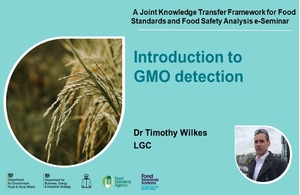Homes England and United Trust Bank launch £250m Housing Accelerator Fund
Homes England, the Government’s housing delivery agency and United Trust Bank (UTB), an established specialist lender, have today announced a £250 million fund to support small and medium-sized builders with development finance at up to 70% Loan to Gross Development Value.
The Housing Accelerator Fund will provide construction loans between £1m and £10m. The alliance will improve access to finance offered to smaller builders and drive the continued diversification of the housing market over the coming years. Applications are being accepted from today and prospective borrowers should contact UTB using the details below.
Gordon More, Chief Investment Officer, Homes England said: “The Housing Accelerator Fund is open for business from today. In line with Homes England’s commitment to supporting SMEs, it will help smaller builders get on and build now, as well as improve the lending landscape for SMEs by driving competition in the market, improving choice and encouraging innovation. United Trust Bank has consistently supported housebuilders of all sizes and is an experienced and capable lender, we’re pleased to be collaborating with them on this long-term partnership and look forward to seeing the fund support the delivery of new homes across the country.”
Noel Meredith, Executive Director, United Trust Bank said: “SME housebuilders have a vital role to play in delivering the UK’s new housing needs and UTB has amassed considerable experience helping such businesses to complete thousands of successful developments. This is an exciting new partnership with Homes England which will make a real difference to both long established and newly formed development companies requiring competitive funding and the long-term support of a knowledgeable and experienced specialist lender. This alliance will help to reinvigorate and increase diversity in the SME housebuilding sector, and boost housing supply in areas under the greatest affordability pressures.”
Housing Minister, Rt Hon Christopher Pincher MP said: “It is a top priority for this Government to build the homes this country needs and it is vital for our economic recovery that we support as many as possible within the house-building industry to deliver these homes. “I welcome the announcement of the alliance between Homes England and United Trust Bank – this is win-win. It will not only support our commitment to build more homes, but also give smaller developers easier access to finance.”
For more information, please visit the United Trust Bank website email development@utbank.co.uk or call 020 7190 5555.
Notes to editors For further information about United Trust Bank: Jason Wyer-Smith – 42 PR: Email: jason@42pr.com / Mobile: 07824 818242 About United Trust Bank United Trust Bank (UTB) is an expanding UK specialist bank founded in 1955 providing a wide range of secured funding facilities for individuals and businesses and deposit accounts for individuals, businesses and charities. The Bank has dedicated divisions providing development finance, bridging finance, structured finance, asset finance and mortgages and their in-depth knowledge combined with commercial awareness makes it the lender of choice for finance brokers, developers and individuals seeking a high quality, bespoke service and a reliable source of funding.
